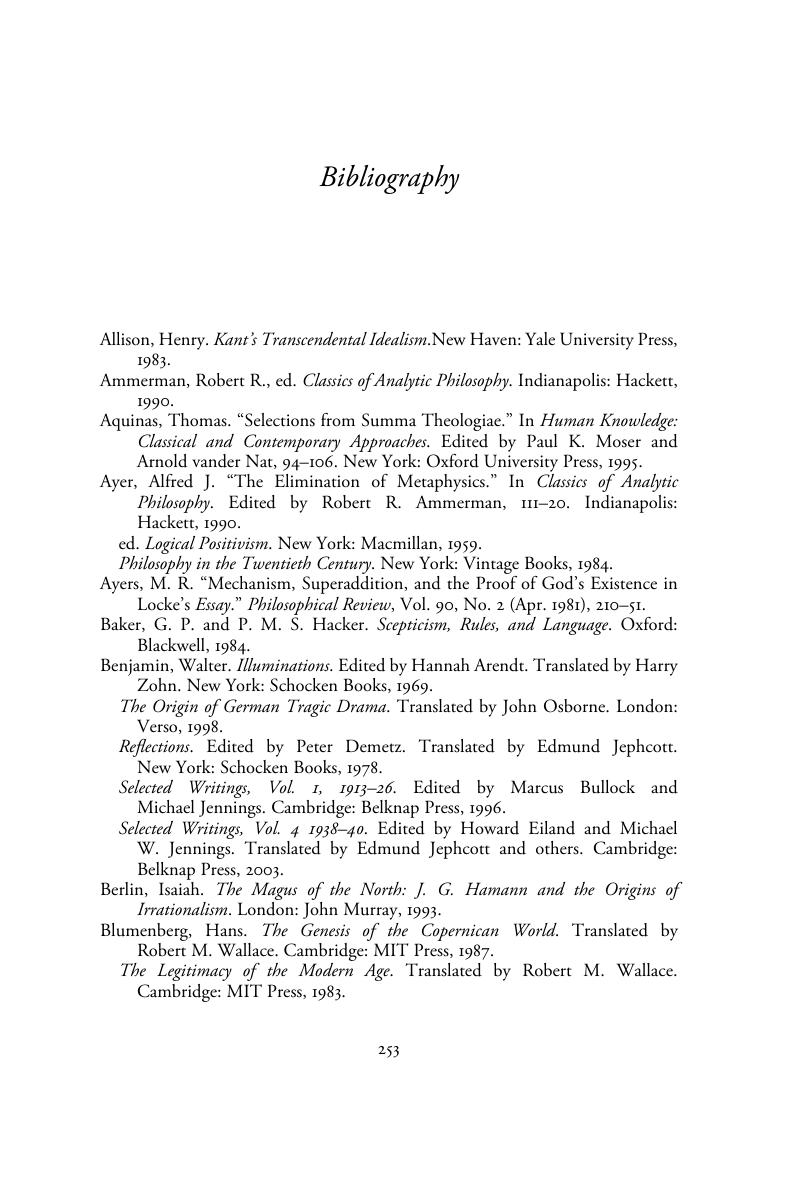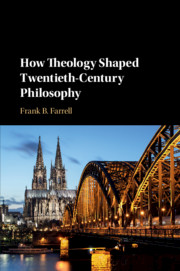Book contents
- How Theology Shaped Twentieth-Century Philosophy
- How Theology Shaped Twentieth-Century Philosophy
- Copyright page
- Dedication
- Contents
- Acknowledgments
- Introduction The Thinning Out of the World
- Chapter 1 Empiricism and Theology
- Chapter 2 John McDowell: Rejecting the Defensive Move Inward
- Chapter 3 Aristotle Redivivus: On Saul Kripke
- Chapter 4 Hegel, Theology, and Pippin’s Reading of Hegel
- Chapter 5 Walter Benjamin: Incarnation or Radical Incommensurability?
- Chapter 6 Rolling Back the Protestant Reformation: Wittgenstein and Dennett
- Chapter 7 McDowell (II): Active and Passive Faculties and the Theological Framework
- Chapter 8 Derrida, the Religion of the Sublime, and the Messianic
- Chapter 9 Literature Today and the Sublime Absence of Aesthetic Experience
- Chapter 10 Where Do We Go from Here?
- Bibliography
- Index
- References
Bibliography
Published online by Cambridge University Press: 22 February 2019
- How Theology Shaped Twentieth-Century Philosophy
- How Theology Shaped Twentieth-Century Philosophy
- Copyright page
- Dedication
- Contents
- Acknowledgments
- Introduction The Thinning Out of the World
- Chapter 1 Empiricism and Theology
- Chapter 2 John McDowell: Rejecting the Defensive Move Inward
- Chapter 3 Aristotle Redivivus: On Saul Kripke
- Chapter 4 Hegel, Theology, and Pippin’s Reading of Hegel
- Chapter 5 Walter Benjamin: Incarnation or Radical Incommensurability?
- Chapter 6 Rolling Back the Protestant Reformation: Wittgenstein and Dennett
- Chapter 7 McDowell (II): Active and Passive Faculties and the Theological Framework
- Chapter 8 Derrida, the Religion of the Sublime, and the Messianic
- Chapter 9 Literature Today and the Sublime Absence of Aesthetic Experience
- Chapter 10 Where Do We Go from Here?
- Bibliography
- Index
- References
Summary

- Type
- Chapter
- Information
- How Theology Shaped Twentieth-Century Philosophy , pp. 253 - 257Publisher: Cambridge University PressPrint publication year: 2019

